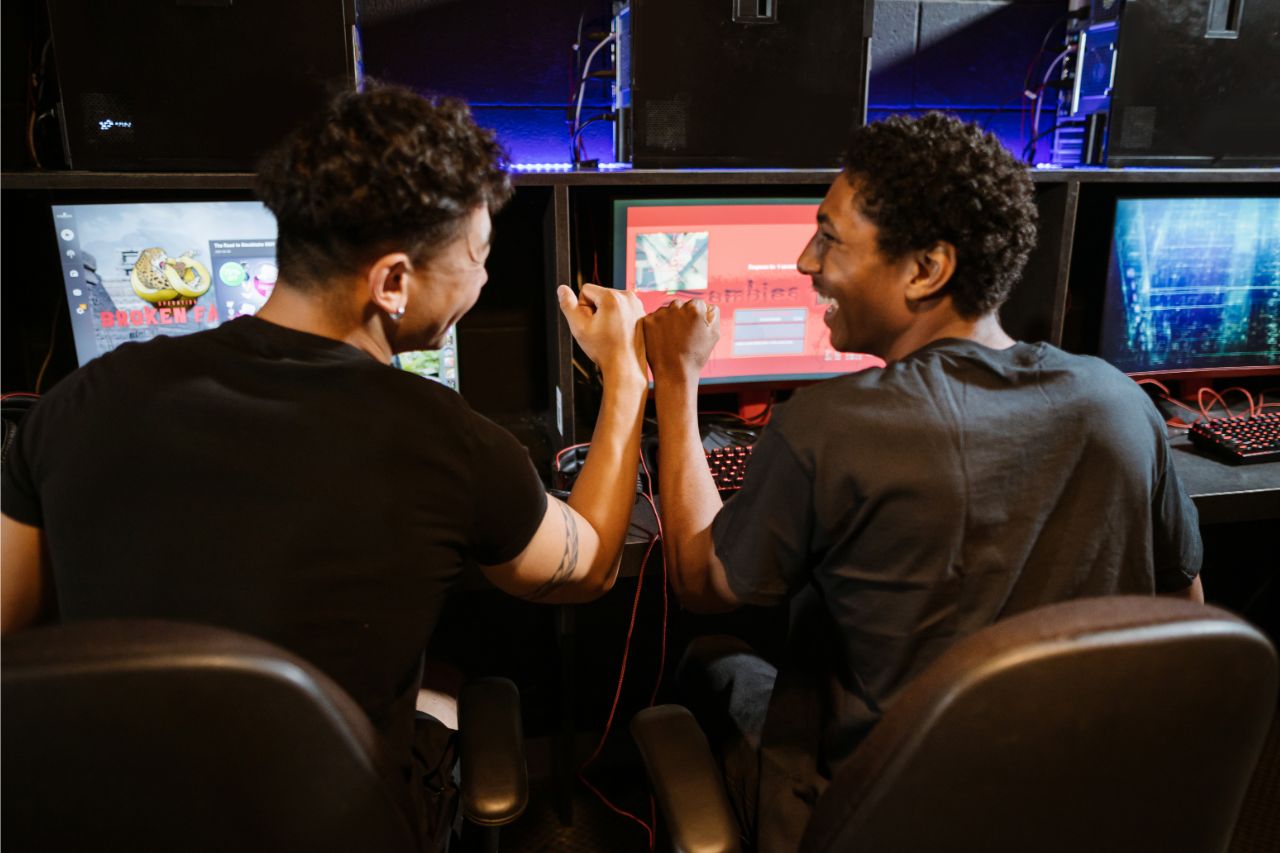Video games have evolved significantly over the years, transitioning from simple pixelated graphics to immersive virtual worlds that captivate players around the globe. Beyond their reputation as a source of entertainment, videogames have also made a profound socio-cultural impact on society. This article explores the various facets of the socio-cultural influence of videogames, delving into their effects on individuals, communities, and even global perspectives. From shaping social interactions to influencing art and storytelling, videogames have proven to be more than just a form of amusement.
The Power of Immersion: Creating New Experiences
One of the primary reasons video games have gained such a strong foothold in popular culture is their ability to immerse players in new experiences. Through advanced graphics, sound design, and storytelling, video games offer a unique opportunity to step into the shoes of diverse characters, explore fantastical worlds, and engage in thrilling adventures. This level of immersion goes beyond mere entertainment, providing players with a means to experience situations and emotions they may not encounter in their everyday lives.
Building Empathy and Perspective
Videogames have the remarkable ability to foster empathy and promote understanding among individuals. By presenting players with challenging scenarios and diverse characters, video games encourage players to consider different perspectives and make moral choices. For example, games like “Life is Strange” tackle topics such as mental health, bullying, and discrimination, prompting players to think critically about these issues and empathize with the characters they control.
Beyond the Screen: Videogames as a Social Platform
Contrary to the solitary image often associated with gaming, video games have become a powerful social platform, bringing people together from different walks of life. Online multiplayer games, such as “Fortnite” and “Among Us,” have revolutionized the concept of social interaction in gaming, allowing players to collaborate, strategize, and compete with friends and strangers alike. These virtual communities foster a sense of camaraderie and provide a platform for socializing and forming connections in an increasingly digital world.
The Rise of eSports: Gaming as a Profession
In recent years, the rise of eSports has transformed video games into a viable career path. Professional gamers compete in high-stakes tournaments, earning substantial prize money and sponsorships. The growing popularity of eSports has elevated gaming from a mere hobby to a recognized profession, attracting a global audience of spectators and fans. This shift has also led to the emergence of esports teams, coaches, and analysts, further solidifying the cultural impact of video games beyond the realm of entertainment.
Breaking Barriers: Inclusivity and Representation
Videogames have the power to challenge societal norms and break down barriers through inclusive representation. Historically, the industry has been criticized for its lack of diversity and stereotypical portrayals. However, recent years have seen a positive shift, with developers striving to create games that feature diverse characters, tackle important social issues, and provide meaningful representation for marginalized groups. Games like “The Last of Us Part II” and “Tell Me Why” have been praised for their authentic representation of LGBTQ+ characters, contributing to a more inclusive gaming landscape.
The Artistic Merit of Videogames
While often overlooked, video games possess a unique artistic merit. The fusion of visual design, musical composition, and narrative storytelling results in interactive experiences that blur the line between traditional art forms and gaming. Games like “Journey” and “Ori and the Blind Forest” showcase stunning visuals, emotive soundtracks, and poignant narratives that evoke deep emotional responses in players. The artistic craftsmanship of video games has gained recognition, with dedicated exhibits and museums showcasing the medium’s impact on contemporary art and culture.
Cognitive Benefits of Gaming
Contrary to common misconceptions, video games offer cognitive benefits that go beyond mere entertainment. Research has shown that certain types of games, such as puzzle-solving and strategy games, can enhance problem-solving skills, critical thinking, and decision-making abilities. Additionally, multiplayer games that require collaboration and communication can improve social skills and teamwork. These cognitive benefits make video games more than just a leisure activity, as they offer a unique and engaging way to develop valuable skills.
According to a study conducted by Granic, Lobel, and Engels (2014), video games have been found to enhance cognitive skills and promote critical thinking. The researchers observed that strategy games, in particular, require players to strategize, plan, and make decisions, leading to improvements in problem-solving abilities. The study also highlighted that video games can enhance spatial reasoning skills, as players navigate and interact with virtual environments.

Moreover, a meta-analysis conducted by Bediou et al. (2018) examined the cognitive effects of action video games. The researchers found that action games can improve attention, perception, and reaction times. Players engaged in fast-paced games developed better visual attention skills and the ability to process information more efficiently.
These studies demonstrate that video games offer cognitive benefits by challenging and stimulating various cognitive processes. However, it’s important to note that individual experiences may vary, and excessive gaming should be avoided to maintain a balanced lifestyle.
Addressing Concerns: Videogames and Violence
One of the most debated topics surrounding video games is their potential impact on real-world aggression and violence. While the media often sensationalizes the issue, research has not found a direct causal link between video games and violent behavior. Numerous studies suggest that other factors, such as pre-existing aggression and social environments, play a more significant role. It is crucial to separate fact from fiction and consider the broader socio-cultural context when discussing the influence of video games on aggression.
Conclusion
Videogames have transcended their status as a mere form of entertainment, exerting a profound socio-cultural influence on society. Through immersion, storytelling, and social interaction, video games have the power to shape perspectives, foster empathy, and bring people together. From the rise of eSports to the representation of diverse characters, video games continue to challenge societal norms and redefine the boundaries of art. While concerns exist, it is crucial to approach the subject with an open mind, acknowledging the multifaceted impact of video games on individuals and communities alike.
References:
Granic, I., Lobel, A., & Engels, R. C. (2014). The benefits of playing video games. American Psychologist, 69(1), 66-78.
Bediou, B., Adams, D. M., Mayer, R. E., Tipton, E., Green, C. S., & Bavelier, D. (2018). Meta-analysis of action video game impact on perceptual, attentional, and cognitive skills. Psychological Bulletin, 144(1), 77-110.

